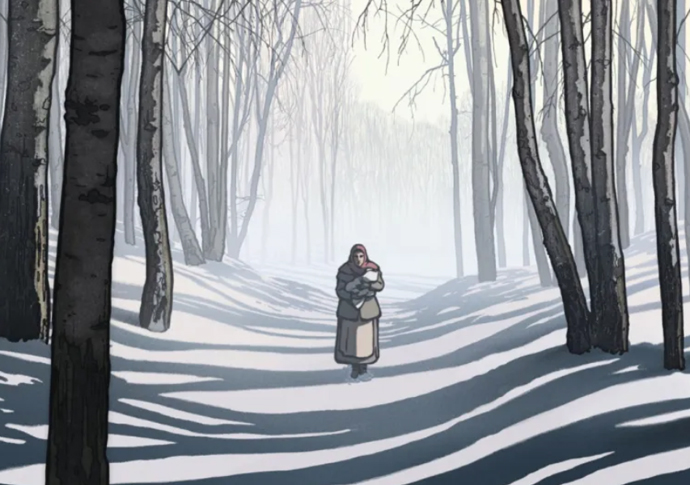How timely animated film screams ‘never again’
In a world seeing the creeping normalisation of far-right views, The Most Precious of Cargoes is a stunning piece of storytelling
Friday, 4th April 2025

THE MOST PRECIOUS OF CARGOES
Directed by Michel Hazanavicius
Certificate: 12a
☆☆☆☆☆
IN the 1930s attempts were made to understand the madness of the far right, described as a reaction to the Depression, or to the errors of the Treaty of Versailles. But the warning signs were there.
Today, one cannot help thinking that as tinpot Fascist leaders are given a false respectability we are at risk of making the same errors.
Author Jean-Claude Grumberg’s father was murdered in the Holocaust. This fable-like approach is understandable: how do you process what happened in any rational way?
In this animated film we are introduced to a couple described as “a poor woodcutter and his poor woodcutter’s wife”. They have been plucked from Hans Christian Andersen and dropped into a nightmare.
The woodcutter’s wife (Dominique Blanc) and her gruff husband (Grégory Gadebois) are childless. In an eerie scene setting opener, we watch as the wife stumbles through snow: a train chugs slowly past, and she hears a cry. A baby has been thrown from a truck. She feels there are higher forces at work – she has always wanted a child. Its arrival is a gift.
The woodcutter is ashamed he cannot father children in a world where virility is a mark of manhood. The appearance of a child sets tongues wagging and sets in motion a series of dark tragedies: our woodcutter gradually realises what he has been told to believe are lies. A disfigured Great War veteran, living as a hermit, steps in to help.
Hazanavicius bides his time before making the obvious apparent, though he offers clues. The baby is wrapped in a Jewish prayer shawl. It tells you what is coming. Then, when we see the story from the parents’ side, we learn these trains are heading to Auschwitz.
Hazanavicius is an art school graduate and created the animation. It is a stunning piece of modern art. Mervyn Peake went to the Belsen concentration camp as a war artist and it changed him. It prompted dark images that he tried to exercise through his art and writing.
The influence of such work is clear. It is a frightening visual exploration that captures the intense horror of the Nazi programme.
This film is timely. We live in a world where the creeping normalisation of far-right views means the horrors of the 1930s and 1940s are vital warnings.
Not only a stunning piece of storytelling and art, This Most Precious of Cargoes screams Never Again.